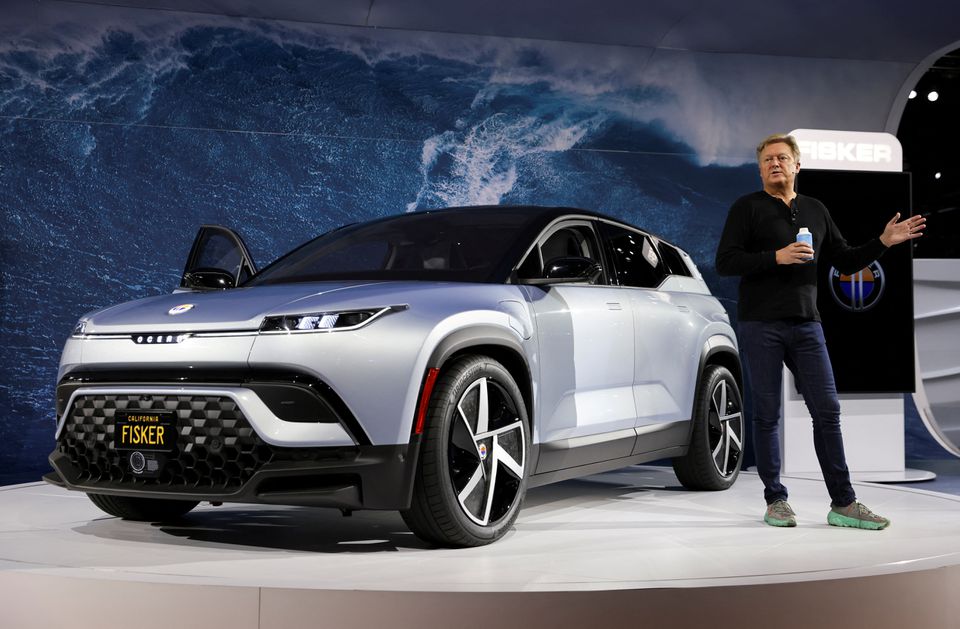NEW DELHI, Sept 23 (Reuters) – U.S. startup Fisker Inc (FSR.N) will begin selling its Ocean electric sport-utility vehicle (SUV) in India next July and could begin manufacturing its cars locally within a few years, the company’s chief executive officer told Reuters.
Sales of electric cars in India will gather pace by 2025-26, Henrik Fisker said in an interview in New Delhi, adding that the company wants to secure a first-mover advantage.
“Ultimately, India will go full electric. It may not go as fast as the U.S., China or Europe, but we want to be one of the first ones to come in here,” Fisker said.
Electric cars currently make up just 1% of India’s roughly 3 million annual car sales, with insufficient charging infrastructure and high battery costs partly to blame for the slow shift.
The government, which wants to increase this share to 30% by 2030, is offering companies billions of dollars in incentives to build their EVs and associated parts locally.
Fisker rival Tesla Inc (TSLA.O) put its India entry plans on hold after failing to secure a lower import tariff for its cars. Like Fisker, it first wanted to import vehicles to test the market before committing to local manufacturing.
While Fisker admitted it is “very expensive” to import vehicles into India, the company wants to use the Ocean to build its brand, with its premium pricing likely to limit numbers, he said.
The Ocean retails at around $37,500 in the United States but importing it to India would add logistics costs and a 100% import tax. That would put it out of reach of most buyers in a market where the bulk of cars sold are priced under $15,000.
“Ultimately, if you want to have somewhat of a larger volume in India, you almost have to start building a vehicle here or at least do some assembly,” Fisker said.
The company’s next EV – the smaller, five-seater PEAR – is being considered for production in India but not before 2026, he said.
“If we can get that vehicle just below $20,000 locally in India, that would be ideal. Then I think we’ll get to a certain volume and market share,” he said, adding that if they find the right local partner the timeline could be shorter.
To set up a plant in India would require volume of at least 30,000 to 40,000 cars a year, Fisker said.
He did not directly comment on the size of investment the company considered necessary, but said that to set up a plant with an annual production capacity of 50,000 cars would likely cost $800 million in India.
Fisker has a contract manufacturing agreement with Magna International (MG.TO) which will produce the Ocean at its Austrian unit and ship it to India. It also has an agreement with Foxconn to build the PEAR.
The company is scouting for real estate space to open a New Delhi showroom and is meeting auto component suppliers to source parts for its global production, he said.
“Already we are starting to build some relationships,” he said.











